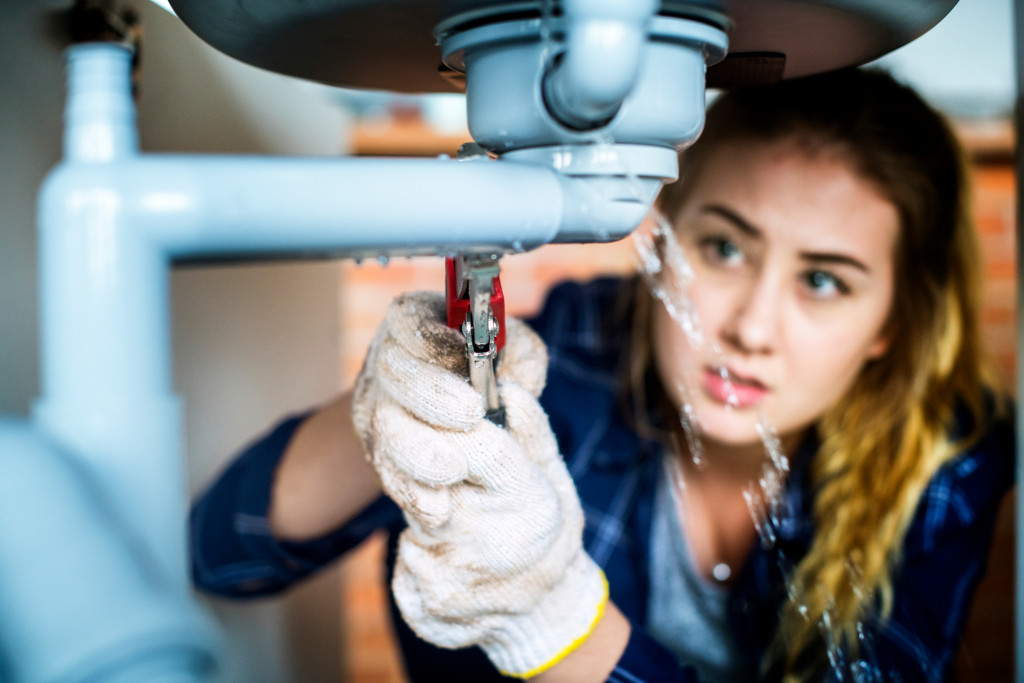It’s every homeowner’s worst nightmare: water damage. Whether it’s a burst pipe, a roof leak, or a flooded basement, water can cause severe damage to your home and belongings. But with a few simple precautions, you can help protect your home from water damage.
This blog post will discuss some simple tips for preventing water damage in your home, so you can rest easy knowing that your home is safe from the damaging effects of water. But first, let’s take a look at what water damage is and how it can occur.
What is Water Damage?
Water damage is the general term used to describe any type of damage caused by water. This can include everything from a small leak in your roof to a major flood in your basement. Water damage can occur due to a variety of reasons, including:
- A broken or leaking pipe.
- A clogged drain or sewer line.
- Heavy rain, flooding, or storm damage.
- Poorly-installed home fixtures.
- Malfunctioning appliances (such as a washing machine, dishwasher, toilet, etc.) that lead to water leaks or overflows.
No matter what the cause of your water damage is, one thing is certain: water damage can be extremely costly and even devastating to your home. Fortunately, there are several simple precautions that you can take to help prevent water damage in your home.
Tips for Preventing Water Damage
1. Inspect Your Home Regularly for Water Leaks
The first step in protecting your home from water damage is to inspect it regularly for any signs of a leak or other problem. You can start with the most obvious places: check under sinks for any signs of leaks, and look in your attic or crawlspace for any water stains. But don’t stop there! Also, check around windows and doors for any cracks or gaps that could allow water to enter your home.

2. Fix Any Leaks Promptly
If you do find a leak, it’s important to fix it right away. Leaving a leak unattended can lead to extensive water damage and even mold growth, which can be expensive and difficult to remove. So if you notice any leaks or other problems in your home, be sure to contact a professional restoration service for help addressing the issue as soon as possible.
3. Install Appliance Hoses Carefully
Some of the most common sources of water damage in homes are malfunctioning appliances, such as washing machines and dishwashers. To help protect against this type of water damage, be sure to install appliance hoses carefully, making sure they are not kinked or bent. This can help prevent leaks that could lead to water damage or overflows.
4. Install a Sump Pump if Necessary
If your home is located in a high-risk area for flooding, you may want to consider installing a sump pump to help prevent water damage during heavy rain or other severe weather events. A sump pump can detect rising levels of water and automatically pump it out of your home, preventing damage from occurring.
5. Know Where Your Water Shut-Off Valve Is
In the event of a major leak or flood, it’s important to know where your home’s water shut-off valve is so you can quickly turn off the water and prevent further damage. The location of your shut-off valve will vary depending on your home’s plumbing, but it’s typically located near the water heater, main water line, or outside near the meter.
6. Keep Valuables Far Away From Water Sources
Since water damage can occur quickly and unexpectedly, it’s important to keep all valuables away from sources of water. For example, if you have a washing machine in your basement, it’s a good idea to move any valuable items up to the main floor, so they don’t get damaged in case of a leak or overflow.
7. Invest in Homeowners Insurance
Finally, one of the best ways to protect your home from water damage is to invest in quality homeowners insurance. A good homeowners insurance policy will cover the cost of repairs if your home is damaged by a covered event, such as a fire or severe weather. So if you don’t have insurance or your current policy doesn’t cover water damage, be sure to shop around and find the right insurance plan for your home.
Water damage can cause serious and expensive problems in your home. It’s essential to take some simple precautions to protect your property from water damage. With the tips above, you can help prevent water damage from occurring in your home and keep your home safe from the devastating effects of water damage.t has a lot to do with weather conditions.
